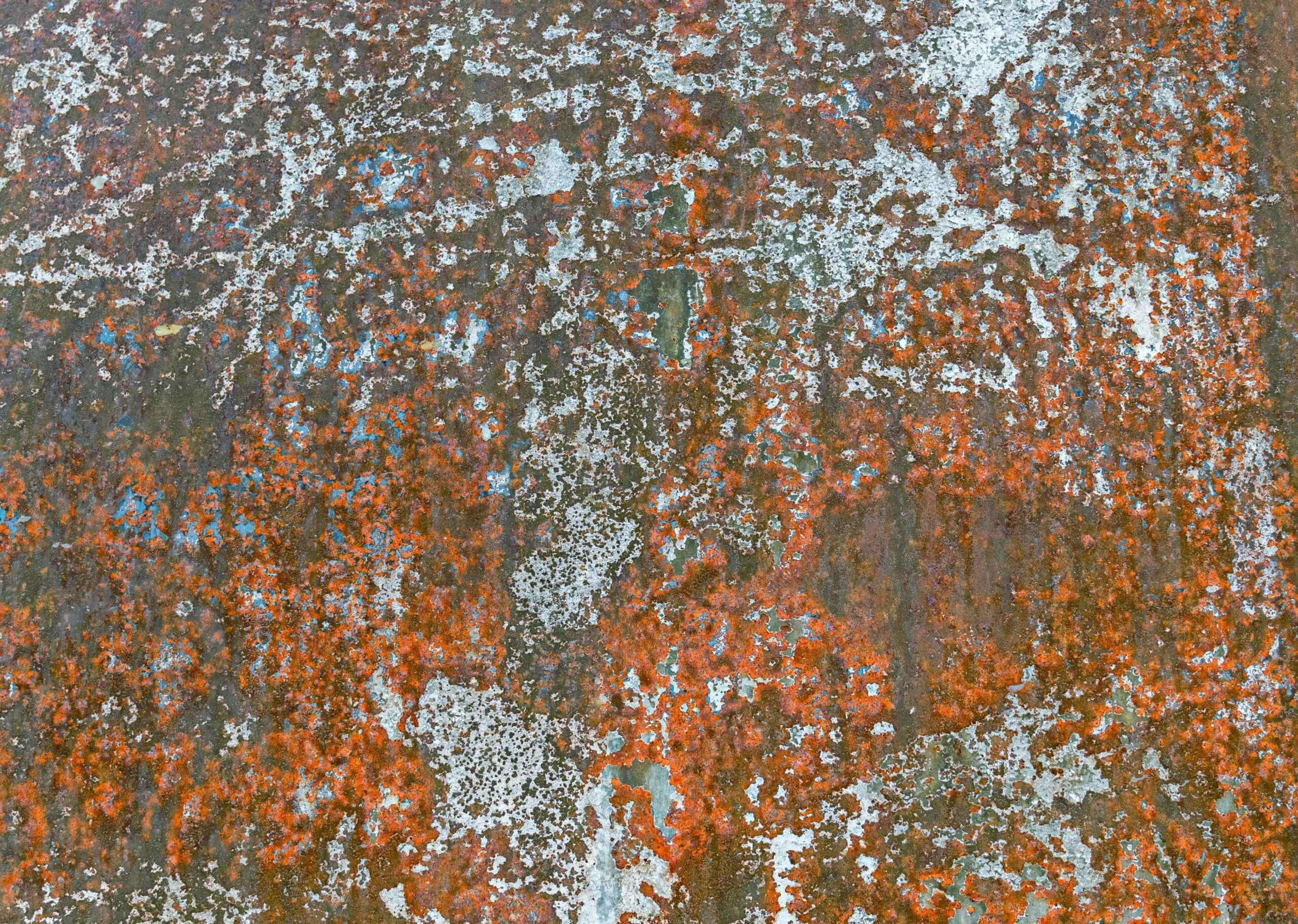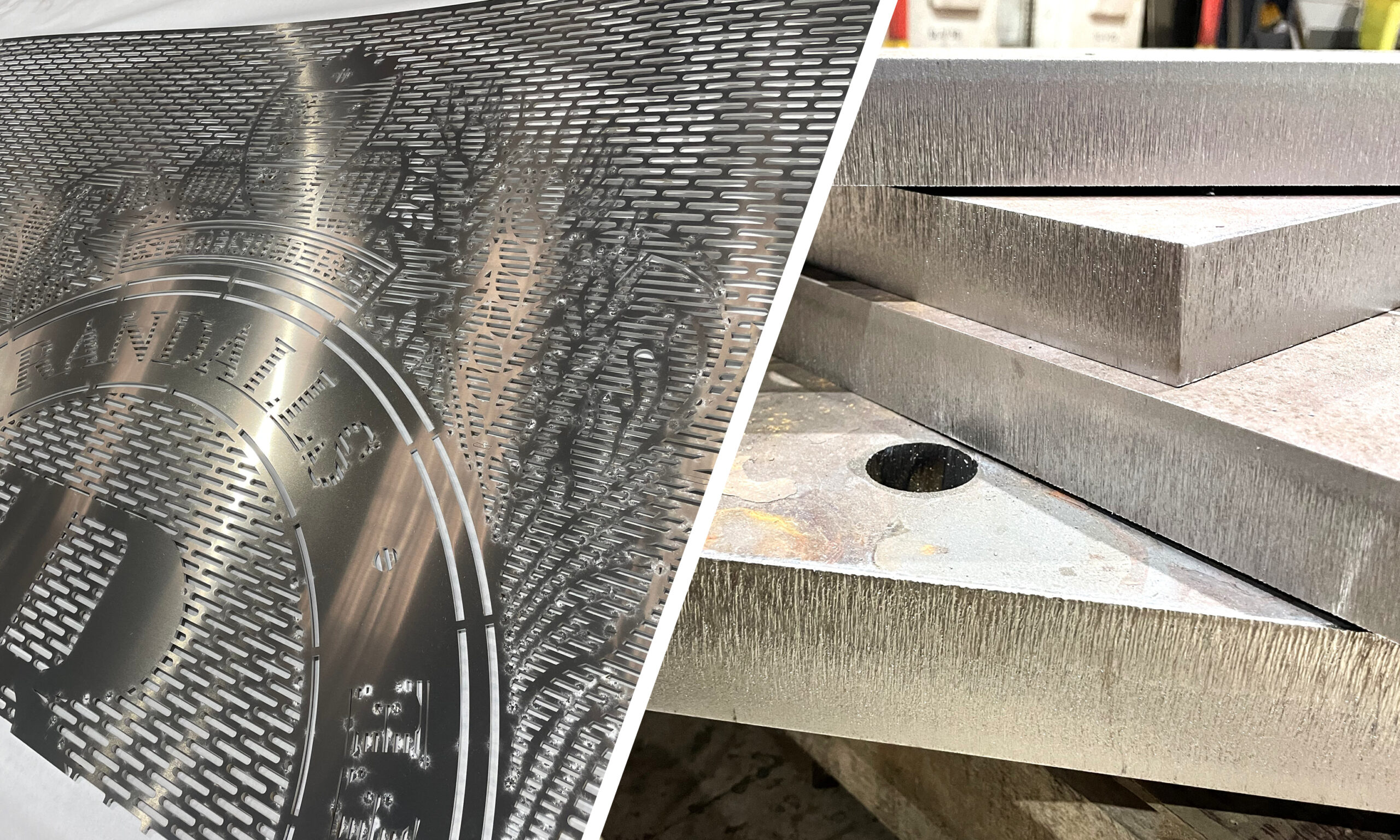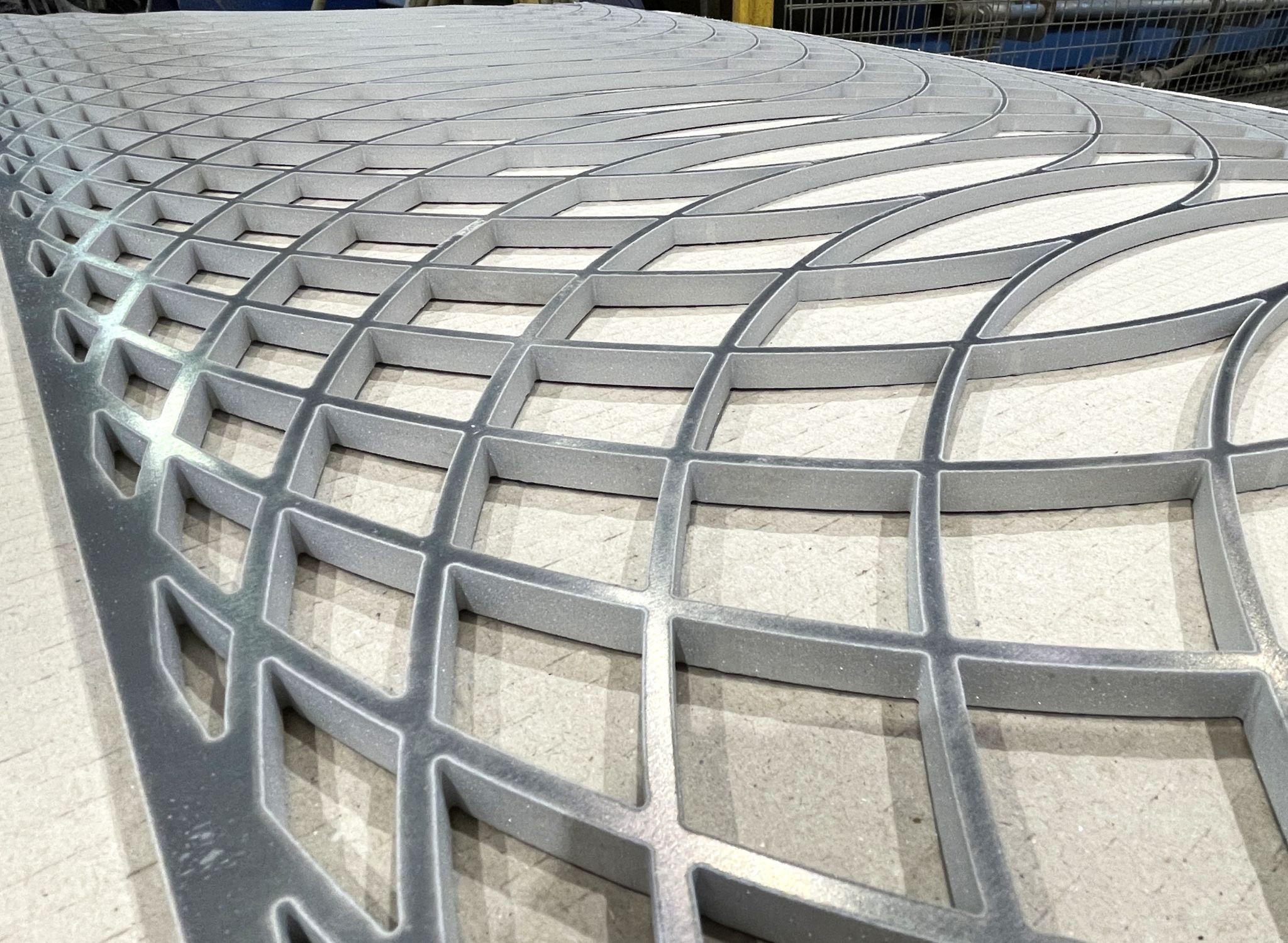CE Marking and the CE logo will probably be familiar to most as it has been a requirement for many years on certain products sold within the European Union, such as toys and electrical goods.
However, as of 1st July 2013, requirements for all structural steelwork to bear the CE mark and be covered by a harmonised European standard or conforming to a European Technical Assessment (ETA) became mandatory.
Following this, CE Marking and compliance to BS EN 1090-1 for fabricated structural steelwork became mandatory in all Member States throughout the European Union (EU) and European Economic Area (EEA) on 1st July 2014.
A Legal Requirement
Under the Construction Production Regulation (CPR), it is now a legal obligation of manufacturers, distributors and importers of construction products used within the EU to carry the CE Mark. This is applied to more than constituent products (steel beams, bolts etc.) but also to fabricated elements and systems made from CE Marked products – which where a large percentage of the profiles cut by Charles Day end up.
Factory Production Control Systems
The BS EN 1090-1 standard explains that all structural steel is critical to safety and therefore all manufacturing and fabrication is required to be carried out in a controlled manner. Therefore in order to supply BS EN 1090-1 compliant metalwork, all manufacturers/fabricators must implement a Factory Production Control (FPC) system and have it certified by a notified body.
Implementation of a FPR and therefore compliance with BS EN 1090-1 is intended to:
- Show that the manufacturer has checked that these products meet EU safety, health and environmental requirements.
- Allows easy indication of a product’s compliance with EU legislation.
- Allow the free movement of products within the European market.
The CPR makes it clear that CE Marking applies throughout the supply chain and imposes certain legal requirements on the manufacturer, the importer and the distributor. It is extremely important that companies are able to identify which part/s of the supply chain describes their activity and the legal obligations placed on them – as failure to comply is a criminal act.
Our Factory Production Control certificate can be seen and downloaded here.
Failure to comply with BS EN 1090-1
Non-compliance is heavily penalised within the UK, starting with suspension notices, prohibition notices and application for forfeiture, failing to comply may even lead to fines, imprisonment or both.
Companies should also be aware that their activities may fall in to one or more parts of the supply chain – e.g. a steelwork contractor who imports steel products is both a manufacturer and an importer and a bolt supplier who imports bolts is an importer and a distributor.
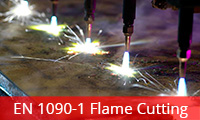
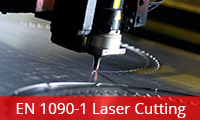
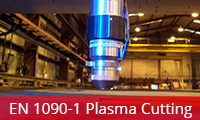
When is BS EN 1090-1 compliance required?
The second part of the BS EN 1090 standard (BS EN 1090-2:2008 – Execution of steel structures and aluminium structures part 2 – requirements for the execution of steel structures) outlines what is required by steel structures and their components to ensure they meet adequate safety standards in resistance, stability, serviceability and durability.
Within the standard, 4 execution classes are set out to describe the end use of the structure and how critical it would be if it failed.
- EXC 1 – E.g. Agricultural
- EXC 2 – E.g. Residential or commercial structures
- EXC4 – E.g. Bridges or Stadia
- EXC 4 – E.g. Special structures such as long span bridges, nuclear sector etc.
For our customers, if a product is destined to be used within execution class EXC 1 up to EXC4 and is to be cut using one of our thermal cutting methods (laser, flame, plasma) then it must be compliant with BS EN 1090-1 standard in order to comply with the CPR.
What this means for our customers?
We have a large proportion of customers working within the construction industry and therefore BS EN 1090-1 compliance is vitally important. We underwent extensive auditing in order to implement a Factory Production Control system that complies with the CPR, ensuring Charles Day can become your number one supplier of CE ready profiles and cut parts.
If you require BS EN 1090-1 compliant laser, plasma or flame cutting services, please contact us and specify your requirement for CE ready profiles at enquiry stage.
